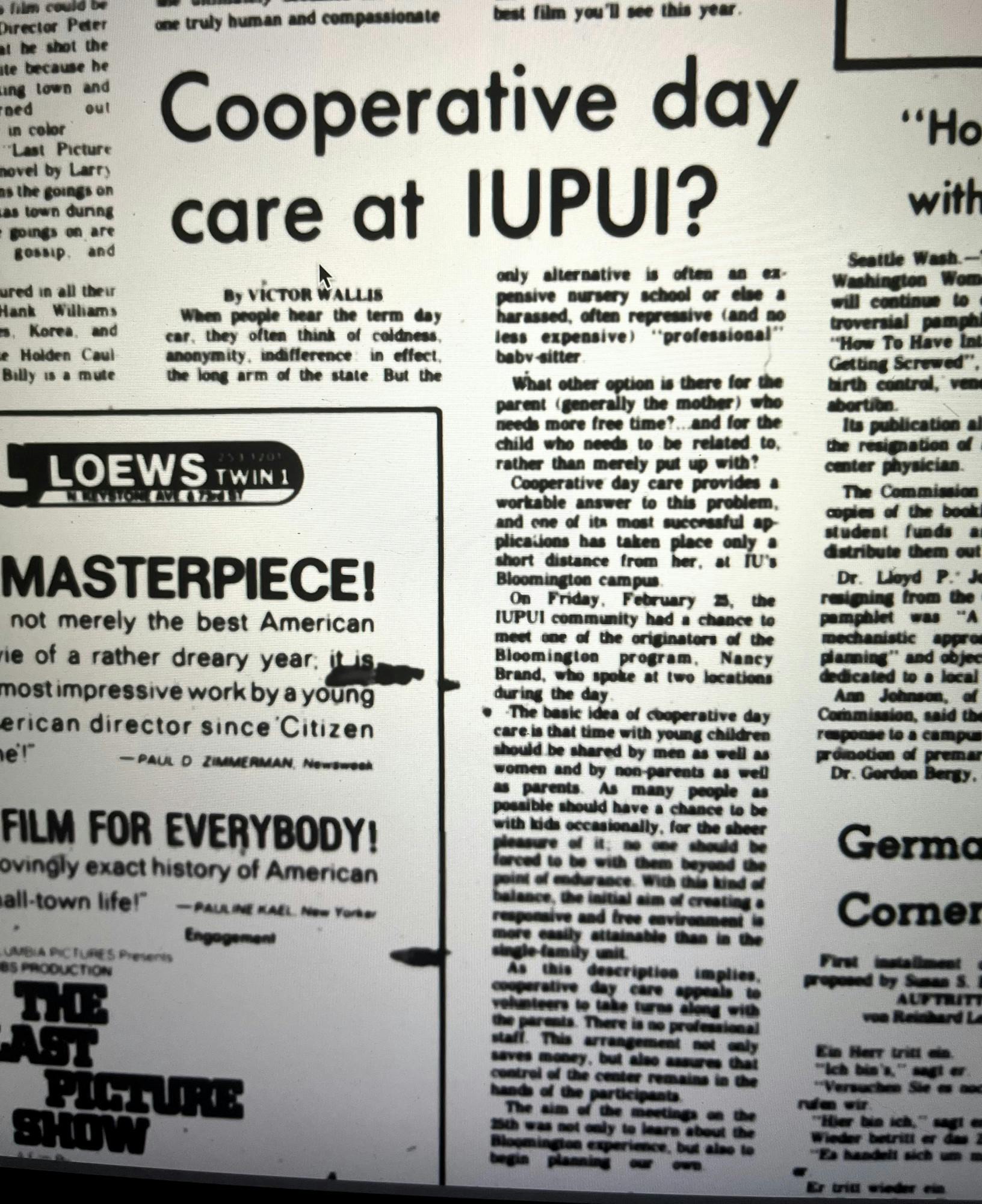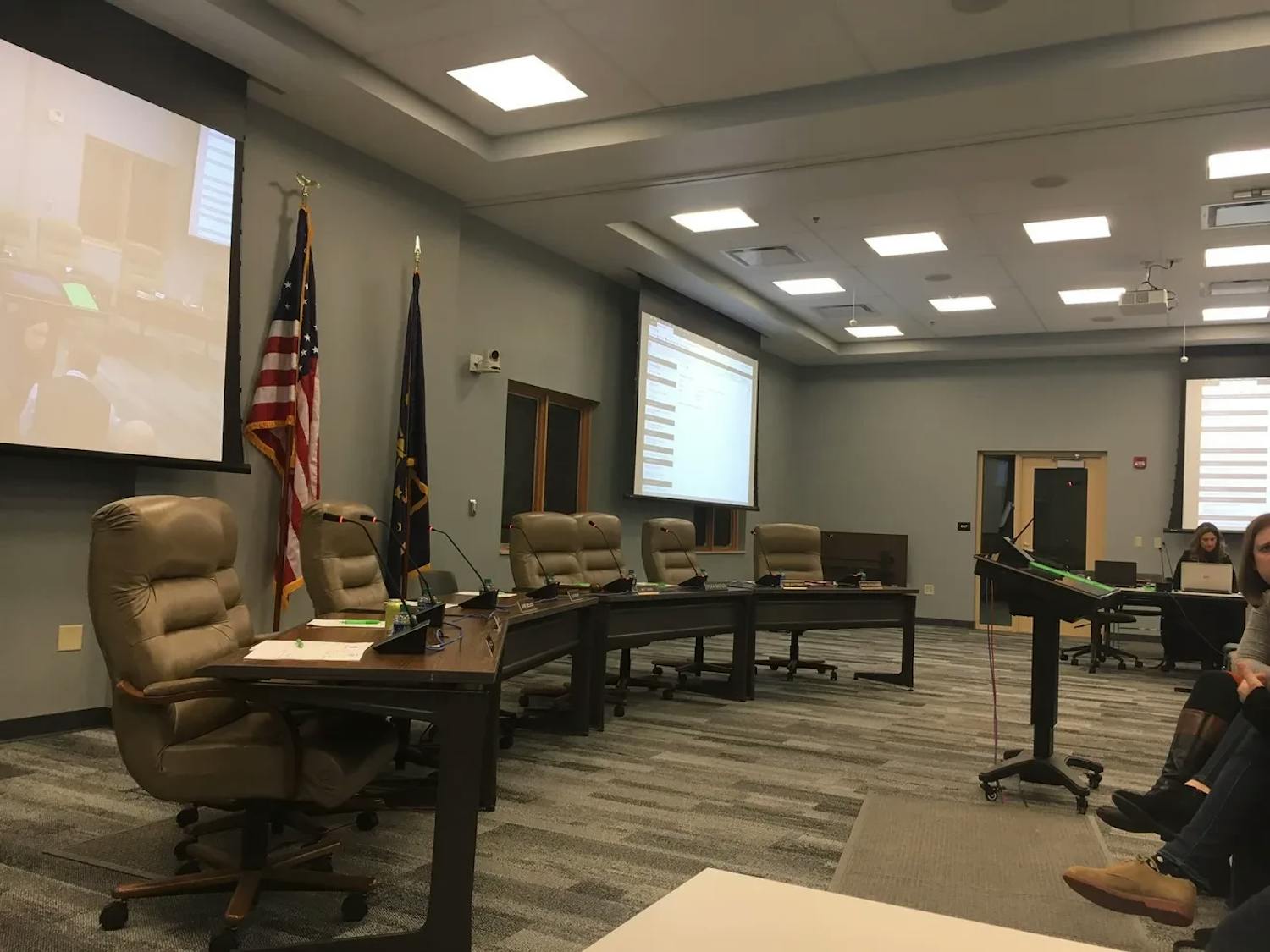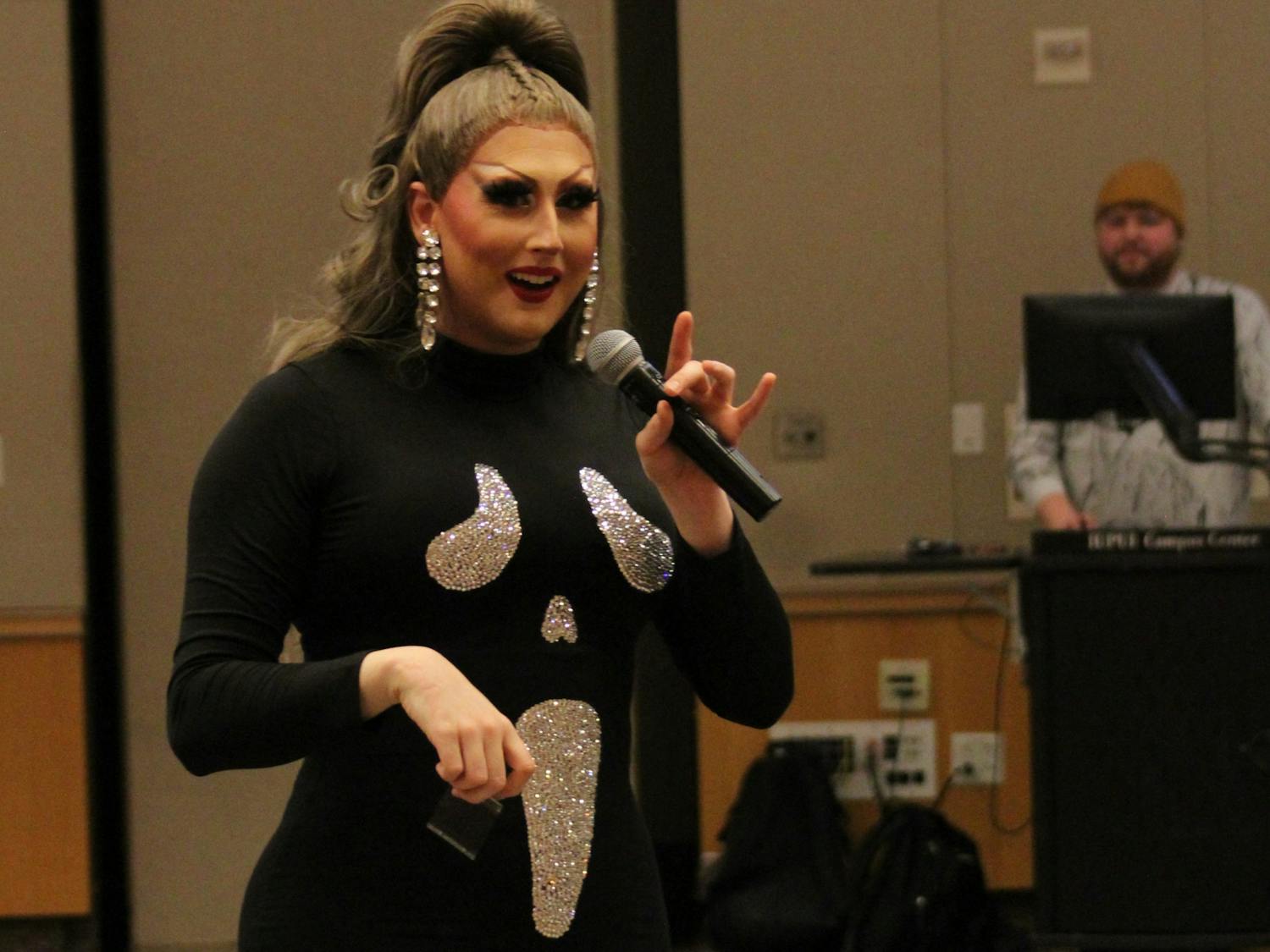“No person in the United States shall, on the basis of sex, be excluded from participation in, be denied the benefits of, or be subjected to discrimination under any education program or activity receiving Federal financial assistance.” Title IX
__________________________________________________________________________
Being a parent is a difficult task. Balancing an academic workload on top of that can make things even more challenging. According to IUPUI Institutional Research and Decision Support data, 1,662 IUPUI students, which is approximately 5.7% of the student body, indicated on their FAFSA application that they had at least one dependent in 2020.
Universities have been expected to make reasonable accommodations for both pregnant and parenting students since Title IX of the Education Amendments Act banned sex-based discrimination in 1972.
One example of these accommodations would be providing a safe or alternative way for students to perform lab experiments required for their program if their healthcare provider says it would be dangerous or providing the opportunity to make up the work later. Another would be a pregnancy-related medical leave policy, similar to that provided for those experiencing temporary disabilities.
IUPUI also offers numerous support resources and student groups, including the IUPUI Grad Parent Network and the Parenting Jags group. However, there is no on-campus housing that supports children, and leases are non-transferable to children.

There is an escape clause in IUPUI housing contracts which states that if medical issues prevent a student from remaining in on-campus housing for the remainder of the year, they do not have to pay a breakout fee. Title IX makes it clear that accommodations that apply in the case of temporary disability must also apply in the case of pregnancy-related conditions.
A representative from Housing and Residence Life affirmed that in such a situation they would “work closely with campus partners to ensure any student, including pregnant or parenting students, is appropriately supported in continuing their education.”
While childcare has not typically been included as a legally-required accommodation, pressure has been mounting for Indiana University to go beyond the status quo where federal and state governments have not already stepped in to provide support. The Indiana Graduate Workers Coalition at IU Bloomington, in fact, recently included this as part of their platform for change.
This discussion has taken on a new importance since the Supreme Court overturned Roe v. Wade on June 24 of this year. According to the Guttmacher Institute, nearly 40% of people who have had an abortion did so primarily to continue their education. The fact that so many feel as though they must obtain an abortion to complete their education seems to point to a failure in realizing the goals of Title IX on a practical level.
In the fall of 2020, IUPUI performed a survey to determine possible avenues for providing aid for childcare to student parents, to which 328 students responded.
Nearly 80% of respondents said that childcare expenses were a big challenge, while 35% indicated that childcare being available when needed was a big challenge.
71% said they would be very likely to take advantage of financial aid to pay for childcare or vouchers to pay for childcare, if offered. 62% said they would be very likely to take advantage of flexible scheduling, if offered.
The Center for Young Children (CYC) at IUPUI, which opened in 2000, currently offers high-quality childcare services; however, their tuition is well over $200 per child per week, in addition to numerous other fees. The demand is usually very high, and the waitlist long, despite only serving approximately 0.6% of the students surveyed in the 2020 report.
“I have had a difficult time finding childcare that fits my schedule and is affordable, especially being in the part time J.D. program at night between 5:30 and 9:00 pm,” said Whitley Yates, a student at the IU Robert H. McKinney School of Law.
Like most childcare services, the CYC is only open until mid-evening (5:30 pm).

In 1972, many of the same problems existed at IUPUI and IU-Bloomington, leading students at the latter campus to establish a cooperative daycare. In February of that year, one of the founders spoke at IUPUI and recommended they do the same, although it never came to fruition.
The idea of a cooperative daycare is that “time with young children should be shared by men as well as women and by non-parents as well as parents…. With this kind of balance, the initial aim of creating a responsive and free environment is more attainable,” according to former IUPUI Sagamore reporter Victor Wallis.
In a co-op, volunteer students and parents alternate caring for a larger group of children, which would allow them to support students taking day or night classes. Parents or outside organizations typically donate food or other snacks.
The Early Childhood Education Program at IUPUI offers a potential source of volunteers, and partnerships with other campus organizations could provide support to the co-op at a low-cost.
“I would definitely participate if there was a co-op on campus,” said Yates.
Perhaps in the future, IUPUI could provide vouchers, scholarships, or another form of reimbursement for parenting students to pay for childcare. A scholarship or subsidies for parenting students, particularly low-income parenting students, would enable more freedom of choice in how the benefits are used, as many daycare centers do not accept vouchers.
While ultimately childcare subsidies would require the IU administration to step in and provide support, it would certainly be possible for students to start a co-op without a large amount of funding from the University.
If you are looking for more resources and assistance as a parenting student, feel free to contact the Office of Student Advocacy and Support at stuadvoc@iupui.edu.
UPDATE: Added contact information for the Office of Student Advocacy and Support. Removed some redundant statistics.
Jacob Stewart is a junior majoring in neuroscience, and the campus editor of The Campus Citizen.





